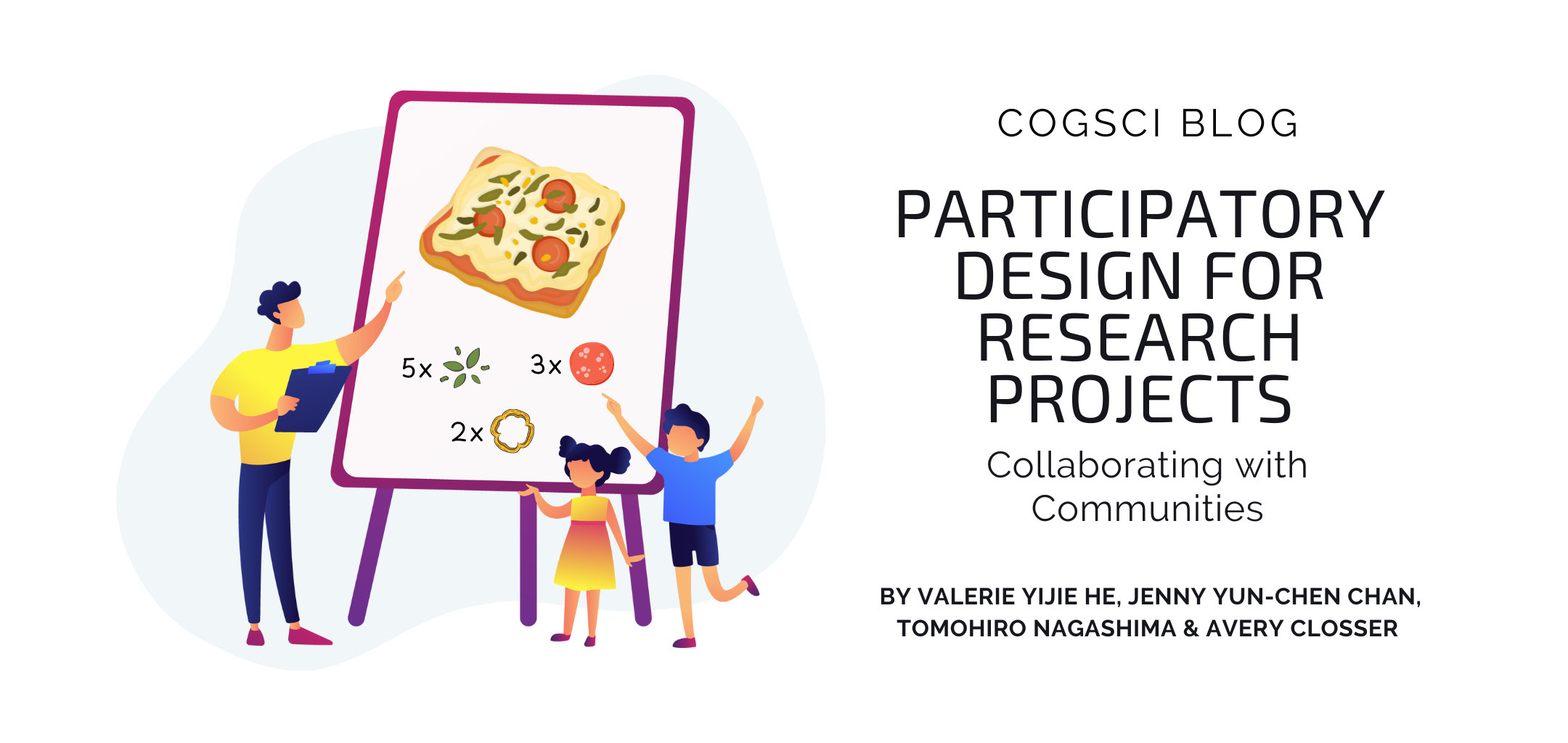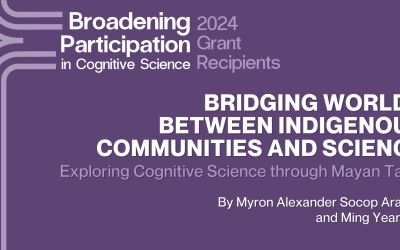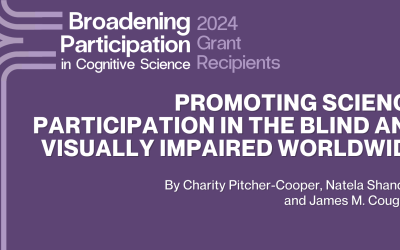Welcome to CogSci Unpacked, an exciting blog series dedicated to summarizing academic papers from the Cognitive Science, a CSS Journal. Our goal is to bridge the gap between academia and the broader public, fostering a better understanding of cognitive science and making it accessible and relatable to all. If you’re curious to dive even deeper, we invite you to explore the full academic paper.
Participatory Design involves community members in the research process, bridging researchers’ knowledge with community members’ experiences (Hall, 1992). It generates practical knowledge and tools that are directly useful for community members. Similarly, cognitive scientists can collaborate with community members throughout the research process to address pressing issues in human cognition (Chan et al., 2023). As an example, Belgrave and colleagues (2022) took this approach to co-design STEM Learning signages with community members. Community members shared their stories of grocery store experiences, revealing the deep-rooted traditions, family practices, and values associated with selecting products. Together, through Participatory Design, they created community-centered signages that reflect the values of the local families. Without Participatory Design, the signages might have been generic, lacking cultural relevance, and overlooking the community’s traditions, limiting the engagement and effectiveness of early STEM learning in grocery stores. In that study, the researchers also gained a deeper understanding of the Latine family values and culturally situated early STEM learning.
How can researchers put Participatory Design into practice? Following the framework suggested in our recent Cognitive Science paper, Chan, Chong, and Tsang (2024) integrated Participatory Design in various stage of a math learning project. The goal of this project was to create a math game that preschool children and caregivers could play in everyday situations. Let’s take a closer look at how the research team collaborates with caregivers and children to create a math game and advance our understanding of human cognition.
Conceptualization: The team first conducted a survey to learn about caregivers’ practices, the challenges they face, and the resources they need to support children’s math learning. The team found patterning (i.e., recognizing and predicting sequences or structures) to be a math topic in which caregivers engaged children the least frequently compared to numeracy and spatial reasoning.
Methodologies and Design: Next, the team conducted a series of co-design workshops with caregivers to design a game targeting patterning skills. Because the participating caregivers’ children love for food, the caregivers designed a restaurant-themed game where children can make patterns with different toppings while building their own pizza as a chef.
Investigation and Implementation: The team tested the co-designed pizza game — Order Up! (see Figure 1) — with children (age 4 to 6 years). Children provided overwhelmingly positive feedback and shared ideas to further improve the game. For example, children wanted to expand the game by adding more toppings and tools to the game. This participatory design process allowed the team to co-design a game that not only teaches math skills but also is feasible, relevant, and enjoyable for children.

Figure 1. A Pizza in Order Up! — a restaurant-themed game.
Interpretation and Dissemination: The team compiled the materials and a brief report to share with the participating families (Chan, Tsang, et al., 2024). By collaborating with caregivers and sharing the findings and game materials, the team hopes to empower caregivers to engage children in playful everyday learning.
In summary, the example illustrates how community members can be involved in various stages of a research project. Participatory Design considers the perspectives and experiences of the communities it aims to serve. Through this co-design process, the researchers also gain insights about cognition situated in the local cultural context (Chan, Nagashima, et al., 2024). Whether designing a system, software, curriculum or investigating human cognition in a specific community, researchers can collaborate with community members they aim to serve and have a positive impact on the world!
References
Belgrave, A. B., Bermudez, V. N., Chew, P., Lin, Y., Ahn, J., & Bustamante, A. S. (2022). Using a participatory design approach for co-creating culturally situated STEM enrichment activities. Journal of Applied Developmental Psychology, 82, 101451. https://doi.org/https://doi.org/10.1016/j.appdev.2022.101451
Chan, J. Y.-C., Chong, C. W. H., Tsang, S. Y. M., (2024) Participatory design of early math learning: A culturally situated playful approach in Hong Kong [Short Paper]. The 18th International Conference of the Learning Sciences (ICLS) 2024, Buffalo, New York USA: International Society of the Learning Sciences. https://repository.isls.org/handle/1/10640
Chan, J. Y. C., Nagashima, T., & Closser, A. H. (2023). Participatory Design for Cognitive Science: Examples From the Learning Sciences and Human− Computer Interaction. Cognitive Science, 47(10), e13365. https://doi.org/10.1111/cogs.13365
Chan, J. Y.-C., Nagashima, T., Saxena, A., Jang, H., & Ho, C. (2024). Unlocking the power of collaborative partnership between researchers and practitioners in early childhood education. The 11th Inter-Conversations Forum, Early Childhood Education at the Education University of Hong Kong. https://youtu.be/qSF2EhBC9Ug
Chan, J. Y.-C, Tsang, S., Kwan, R. (2024). Learning in everyday contexts: Design and test a math game. A Brief Report on Preliminary Findings for Research Project. https://bit.ly/briefreport
Hall, B. L. (1992). From margins to center? The development and purpose of participatory research. The American Sociologist, 23(4), 15-28. https://doi.org/10.1007/BF02691928







